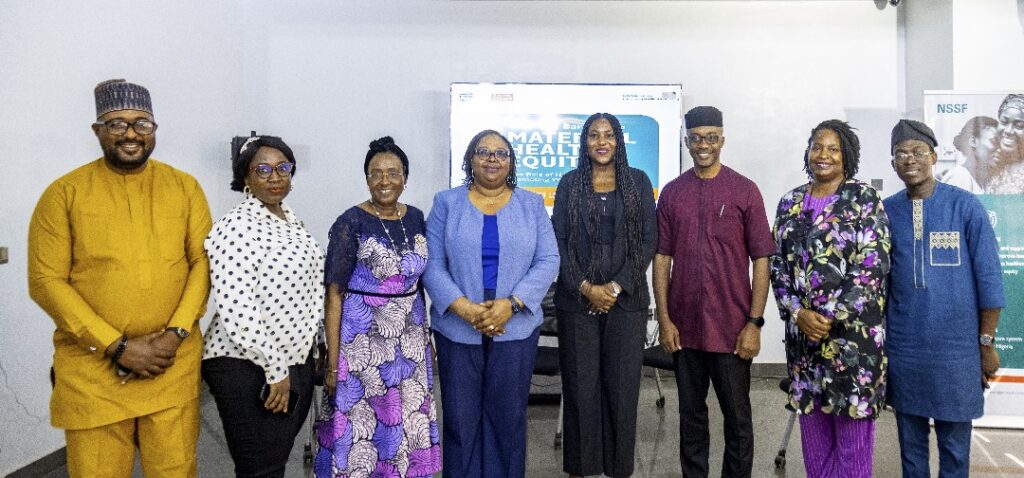By HeapNews

The Nigeria Solidarity Support Fund (NSSF) has renewed its call for inclusive and sustainable health insurance policies as a critical tool in addressing Nigeria’s alarming maternal mortality rate.
At the 7th edition of its Fireside Chat Series held on Wednesday, April 30, 2025, in Abuja, stakeholders from government, donor agencies, development partners, and the health sector gathered to chart a path toward maternal health equity under the theme: “Breaking Barriers to Maternal Health Equity: The Role of Health Insurance in Promoting Women’s Wellness.”
Dr. Fejiro Chinye-Nwoko, Managing Director and CEO of NSSF, said maternal healthcare in Nigeria cannot remain a privilege when it should be a basic right.
“Nigeria’s maternal mortality rate remains unacceptably high with over 1,000 deaths per 100,000 live births. This cannot continue,” Dr. Chinye-Nwoko stated. “We are here to ask the hard questions: how can we ensure that when a woman needs care, she can access it without money in her pocket and without delay?”
She added that the time has come for policies and funding that match the urgency of the crisis.
“Women are not just uninformed, they’re unregistered, unempowered, and underserved. We have the tools, data, and partnerships to change that,” she said. “What we need now is bold policy implementation and strong financial commitment.”
Read Also: “Why So Many Mothers Still Die”: NSSF Sparks National Dialogue on Maternal Health Equity
Among the expert panelists was Dr. Mojisola Odeku of the Bill & Melinda Gates Foundation, who stressed the role of donor collaboration in expanding access to quality healthcare for women.
Also on the panel was Professor Chima Onoka, representing the National Health Insurance Authority (NHIA), who highlighted ongoing reforms, including the digitization of insurance registration and expansion of coverage for vulnerable groups.
From the Federal Ministry of Health, Dr. Binyerem Ukaire pointed to key national interventions:
“We are providing free emergency cesarean sections and treatment for Vesico-Vaginal Fistula (VVF) in over 20 states,” she revealed, “but we need more integrated approaches to truly reach those in need.”
A recurring question at the event, “Who pays for the health of the poor?” sparked critical discussions on financing. The panel reached consensus that government-backed insurance schemes and preventive healthcare strategies are essential to reduce the maternal death toll and ease the burden on low-income families.
NSSF also shared firsthand insights from its grassroots initiatives in Ekiti State and through its WeNaija Impact Cohort program, which has exposed deep-seated challenges including misinformation, distrust, affordability, and low awareness of available health insurance services.
To bridge these gaps, the NSSF announced plans to develop a series of policy briefs containing actionable recommendations from the dialogue. These will be shared with government institutions, civil society, and healthcare partners to inform gender-sensitive, inclusive health policies.
“We’re not just talking, we’re taking action,” Dr. Chinye-Nwoko concluded. “Through the WeNaija Impact Cohort, we’re piloting models like insurance education, wellness vouchers, and community-led strategies that bring care closer to the women who need it most.”
The Fireside Chat underscored the urgent need for systemic change and reaffirmed NSSF’s role as a driving force in advancing maternal health equity across Nigeria.
